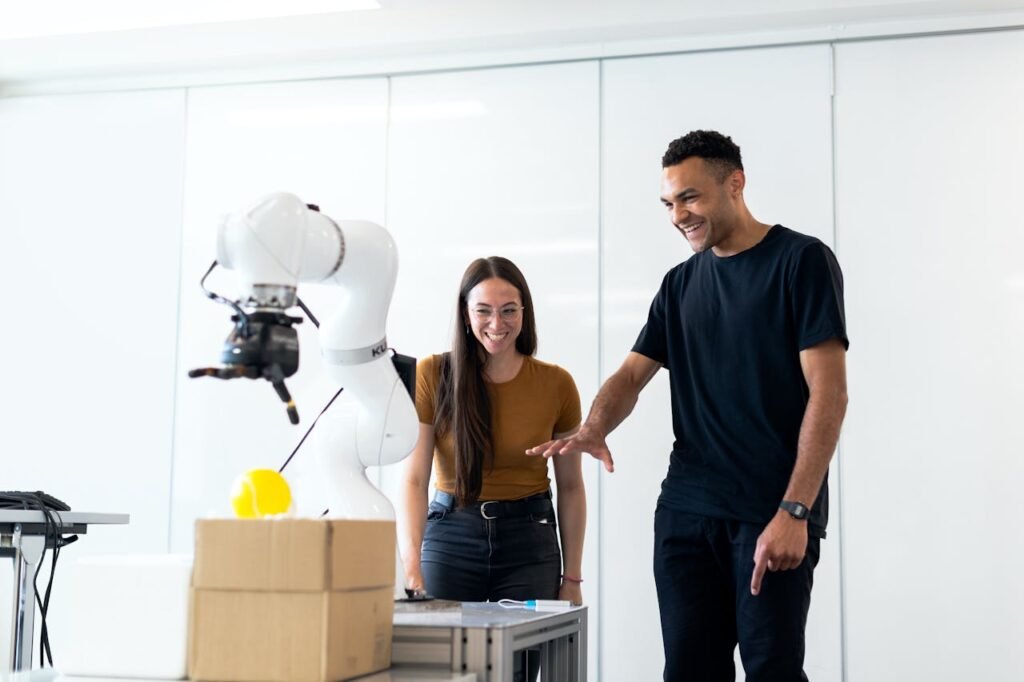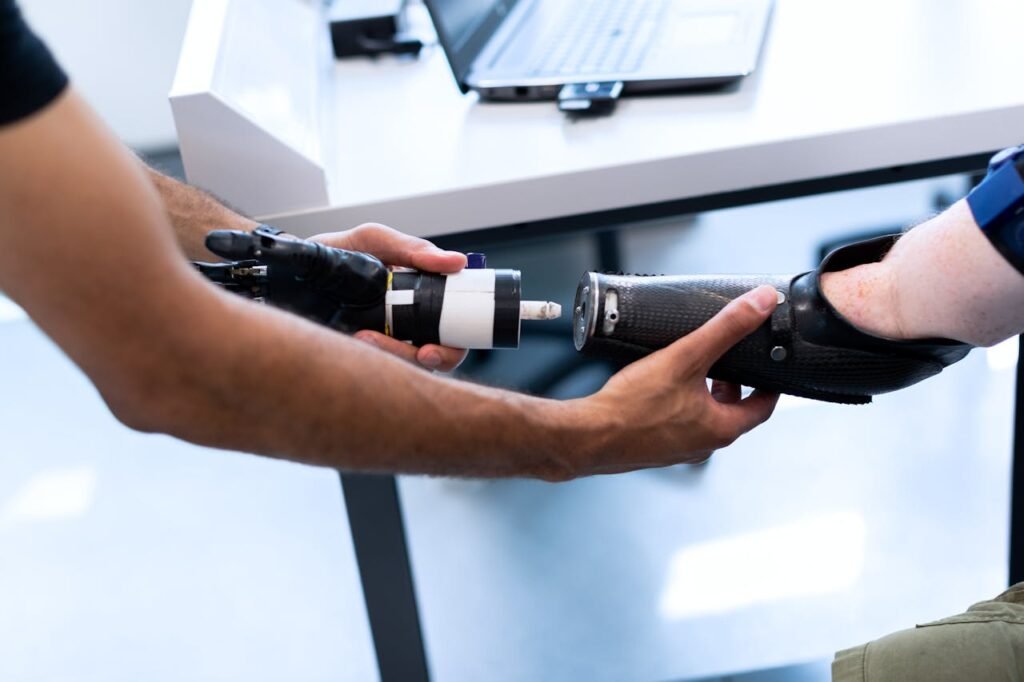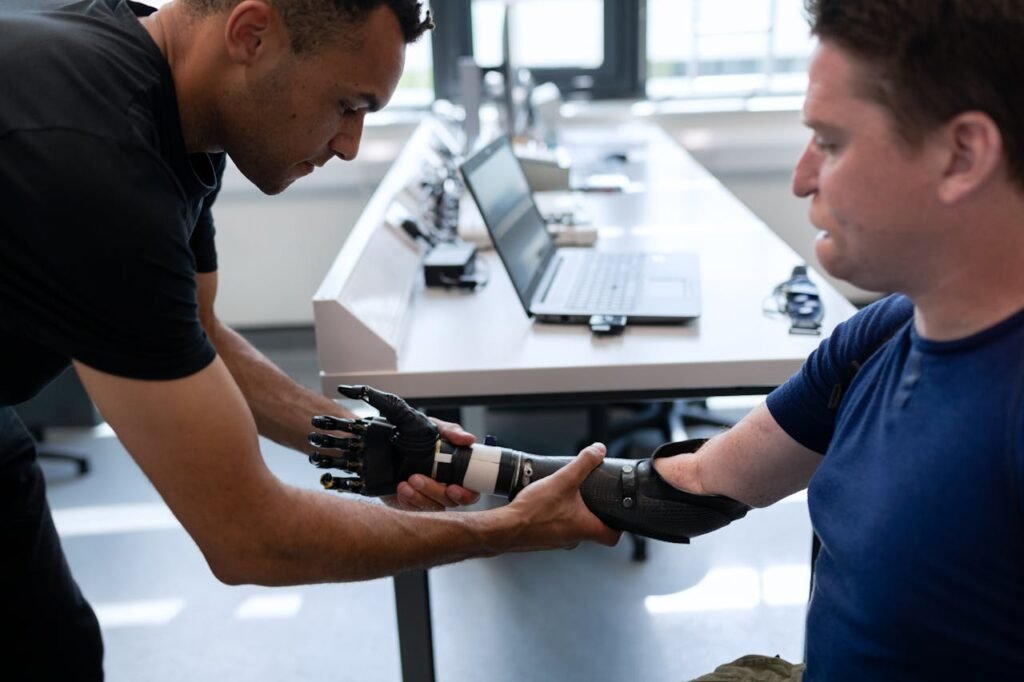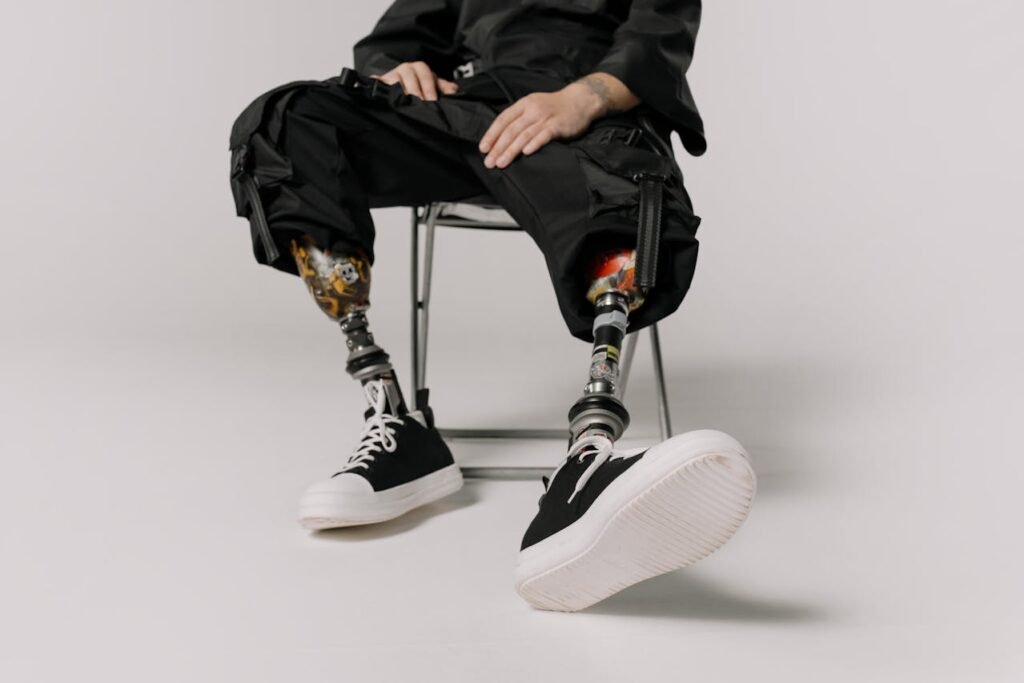Re-entering the workforce after acquiring a disability can feel like stepping into unfamiliar territory. It’s a journey filled with challenges, uncertainties, and new adjustments. But it’s also an opportunity to rediscover your strengths, rebuild your confidence, and adapt in ways you might not have imagined before. With the right mindset, resources, and support, transitioning back to work can become a rewarding experience that redefines how you see yourself and your capabilities.
In this guide, we’ll explore practical and actionable steps to help you navigate this transition smoothly. From understanding your rights to finding the right tools and support systems, we’re here to empower you every step of the way. Whether you’ve just started this journey or are preparing to take your first steps back into the workplace, this article is designed to provide clarity, encouragement, and solutions.
Understanding Your New Normal
The first step to returning to work after acquiring a disability is recognizing and embracing your new normal. It’s natural to feel a mix of emotions—frustration, anxiety, or even self-doubt. However, this phase is a pivotal part of the process. Understanding what has changed and what remains constant in your abilities can help you build a strong foundation for the road ahead.
Assessing Your Abilities and Needs
Begin by evaluating your current strengths and limitations. This doesn’t mean focusing solely on what’s changed but also recognizing the skills and talents you still possess. Consider consulting with a rehabilitation specialist, occupational therapist, or career counselor to help identify any workplace accommodations you may need.
For instance, if you’re a desk-based professional, adaptive tools like a bionic hand such as Grippy™ by Robobionics can restore functionality and precision, making everyday tasks easier. Similarly, individuals in physically demanding roles might benefit from specialized prosthetics designed for strength and durability.
Setting Realistic Goals
Returning to work doesn’t mean you have to jump in at full capacity right away. Setting realistic, incremental goals can help you ease into the process while building confidence. Discuss flexible working hours or phased returns with your employer, allowing time for adjustments as you adapt.

Building a Support System at Work
Transitioning back to work is not a solo journey. One of the most strategic steps you can take is building a strong support network within your workplace. This includes colleagues, managers, and even external advocates who understand your journey and are willing to collaborate in creating a thriving work environment.
From a business perspective, managers should be proactive in identifying opportunities to provide mentorship and support. Regular one-on-one meetings with returning employees can help create an open dialogue about what’s working and where additional resources might be needed.
For example, if an employee is using a prosthetic device like Robobionics’ Grippy™ bionic hand, the manager could facilitate training sessions to help the employee integrate its use into their role effectively. A supportive workplace not only fosters individual confidence but also boosts team morale by showing a commitment to inclusion.
Reassessing Workflows and Processes
Understanding your new normal also involves a practical evaluation of workflows and processes. After acquiring a disability, you may need to adjust how you approach daily tasks, timelines, and responsibilities. This doesn’t mean reducing output but finding smarter, more efficient ways to achieve the same outcomes.
For businesses, accommodating these adjustments can lead to broader benefits. Inclusive design often results in better workflows for everyone. For instance, introducing adaptive technology, flexible scheduling, or remote work options may initially support one employee but can also create a more dynamic and accessible workplace for the entire team.
Emphasizing Continuous Learning
Your new normal is not static; it evolves as you adapt and grow in your role. This is where continuous learning becomes a cornerstone of success. For individuals, engaging in ongoing education—whether through formal training programs, certifications, or simply on-the-job learning—can be incredibly empowering.
For example, learning to optimize the functionality of a prosthetic device or mastering new software that aids accessibility can significantly enhance job performance.
Businesses should foster a culture of lifelong learning by offering inclusive professional development opportunities. This could include creating disability-focused training programs or providing funding for employees to attend workshops that help them thrive in their roles.
Partnering with organizations like Robobionics to offer training on adaptive tools such as the Grippy™ bionic hand can further bridge the gap between capability and opportunity.

Exploring Your Workplace Rights and Resources
One of the most empowering steps you can take is understanding your rights as an employee with a disability. Armed with this knowledge, you can ensure a fair and supportive work environment.
The Legal Framework in India
India’s Rights of Persons with Disabilities Act, 2016, provides robust protections for individuals with disabilities. This law ensures that workplaces remain inclusive, offering equal opportunities and reasonable accommodations to employees. Familiarize yourself with these provisions to understand what accommodations you’re entitled to, such as modified workstations, flexible hours, or assistive devices.
For example, if your disability impacts your mobility or dexterity, a prosthetic solution tailored to your needs could be an essential accommodation. Robobionics specializes in lightweight, ergonomic prosthetics that ensure comfort and functionality, helping you focus on your work with confidence.
Building a Support System at Work
A supportive workplace isn’t just about physical changes; it’s about fostering understanding and inclusivity among colleagues and management. Open communication is key here. Inform your employer about your needs and discuss how they can assist you in transitioning smoothly.
Consider connecting with disability-focused employee resource groups, where you can find support, share experiences, and advocate for greater inclusivity. Building these networks not only empowers you but also helps create a workplace culture that values diversity.
Proactively Engaging With HR and Legal Teams
To fully exercise your workplace rights, open and proactive communication with your company’s HR and legal teams is essential. Employees with disabilities should approach HR representatives to discuss their specific needs and clarify their entitlements under company policies and national regulations.
This conversation can be framed as a collaborative effort to create a work environment that supports productivity and well-being.
For businesses, HR teams should be equipped with thorough training on disability laws and best practices for handling accommodation requests. Instead of waiting for employees to reach out, HR can initiate check-ins with employees returning to work after acquiring a disability. This proactive approach not only reassures employees of their value to the organization but also sets the stage for a seamless transition.
Mapping Internal and External Resources
Organizations often have internal resources designed to support employees with disabilities. These may include workplace accessibility audits, mental health services, or mentorship programs that pair employees with experienced colleagues who understand their challenges.
Employees should take the time to familiarize themselves with these offerings, as they can be instrumental in adjusting to a new work environment.
External resources are equally valuable. Disability advocacy groups, legal aid organizations, and rehabilitation providers can offer guidance on workplace rights and resources. For example, companies like Robobionics provide access to cutting-edge prosthetic solutions and support services that enhance workplace performance.
Partnerships with such organizations can amplify a company’s ability to provide employees with the tools they need to succeed.
Advocating for Custom Accommodations
Workplace accommodations aren’t one-size-fits-all. Employees have the right to request adjustments tailored to their specific needs. Whether it’s flexible work hours, remote work options, or specialized equipment like adaptive keyboards or prosthetics, these accommodations ensure employees can perform their roles effectively.
For instance, if an employee uses a prosthetic device like the Grippy™ bionic hand, they might need time to practice using the device in a work setting or require modifications to their workstation to maximize its functionality. Companies should recognize the unique nature of each request and work collaboratively with the employee to find solutions that benefit both parties.

Relearning Skills and Adapting to Changes
Adapting to life with a disability often means relearning certain skills or finding new ways to perform old tasks. This can feel daunting, but it’s also an opportunity to discover innovative solutions.
Leveraging Technology and Tools
Modern technology offers a wealth of resources designed to make work easier for individuals with disabilities. From voice-recognition software to advanced prosthetics like Grippy™, these tools bridge the gap between challenges and possibilities. By incorporating these solutions, you can regain independence and confidence in your daily tasks.
Continuous Learning and Upskilling
Staying competitive in today’s job market often requires continuous learning. Use this transition as a chance to develop new skills or deepen your expertise in areas that interest you. Online courses, webinars, and workshops can be excellent ways to build your capabilities while adapting to your new circumstances.
If you’re uncertain where to begin, career counselors and training programs tailored for individuals with disabilities can provide guidance. Many organizations, including Robobionics, actively support skill development initiatives for individuals with limb loss, empowering them to achieve their goals.
Building Confidence and Emotional Resilience
Transitioning back to work after acquiring a disability is as much about emotional readiness as it is about physical adaptation. Building confidence and resilience can help you overcome challenges, stay motivated, and foster a positive outlook toward your career.
Acknowledge Your Achievements
It’s easy to focus on what feels difficult, but take a moment to celebrate the milestones you’ve achieved so far. Whether it’s mastering a new prosthetic or learning to adapt to everyday activities, every step forward is a success worth acknowledging.
Recognizing your progress not only boosts confidence but also strengthens your belief in your ability to thrive in a professional setting. Remember, your disability is just one part of your story—it doesn’t define your value or potential.
Seek Emotional Support
Re-entering the workforce can feel isolating at times, but you’re not alone. Surround yourself with people who uplift and encourage you, whether it’s family, friends, or support groups.
Many communities and organizations provide safe spaces to share experiences and find guidance from those who’ve faced similar journeys.
If you’re struggling with self-doubt, don’t hesitate to seek professional counseling. A mental health professional can help you develop coping strategies and rebuild emotional resilience, ensuring that you’re prepared for the demands of a work environment.
Practice Self-Advocacy
Advocating for yourself at work is essential, especially when it comes to discussing accommodations or sharing your needs with colleagues. Approach these conversations with confidence, emphasizing what you can contribute to the team while clearly outlining the support you require.
For example, if you need ergonomic modifications, advanced prosthetics, or assistive technologies, explain how these tools will enhance your productivity.

Adapting to Workplace Dynamics
Navigating workplace culture can be tricky, especially when adapting to new circumstances. Developing strategies for effective communication and collaboration can ease this transition and foster stronger relationships with your colleagues.
Communicate Openly with Your Employer
A transparent relationship with your employer is key to ensuring a smooth transition. Regularly update them about your progress, challenges, and any accommodations you might need. Employers appreciate proactive communication, and it helps build mutual trust.
For instance, if your role involves tasks that require precision and dexterity, you could highlight how advanced prosthetics like Grippy™ enable you to perform these duties effectively.
Strengthen Workplace Relationships
Colleagues play a significant role in shaping your work environment. Building positive relationships with your team can create a sense of belonging and foster collaboration.
Be open about your journey, but only share details you’re comfortable with. Often, people are curious but don’t know how to approach the topic, so initiating these conversations can break the ice.
Encourage teamwork by focusing on shared goals and demonstrating your enthusiasm for contributing to the team’s success. Your resilience and determination will likely inspire others and strengthen workplace camaraderie.
Manage Stress Effectively
Returning to work might feel overwhelming at times, but stress management techniques can help you stay grounded. Incorporate practices like mindfulness, deep breathing, or short breaks into your daily routine to reduce stress and maintain focus.
Balancing work and personal life is equally important—ensure you’re allocating time to rest, recharge, and pursue hobbies or activities that bring you joy. Emotional and physical well-being go hand in hand, and prioritizing both will set you up for long-term success.
Leveraging Rehabilitation for Workplace Readiness
Rehabilitation plays a pivotal role in preparing you to rejoin the workforce. Tailored programs can help you regain independence, sharpen skills, and build confidence in a controlled, supportive environment.
The Role of Gamified Rehabilitation
Traditional rehabilitation can sometimes feel monotonous, but gamified rehabilitation introduces an element of fun and engagement to the process. Through interactive exercises and games, you can improve your mobility, dexterity, and cognitive abilities in an enjoyable way.
Robobionics offers gamified home-based rehabilitation programs designed to make adapting to prosthetics easier and more intuitive.
Preparing for Real-World Scenarios
Rehabilitation isn’t just about physical improvement—it’s also about preparing for real-world challenges. Simulations and adaptive exercises can help you practice workplace tasks, from typing on a computer to lifting objects. These exercises instill confidence and ensure you’re ready to tackle your responsibilities with ease.
Collaborate with your rehabilitation specialist to design a program tailored to your professional needs. This personalized approach ensures that the transition back to work feels natural and seamless.
Finding the Right Workplace Accommodations
Workplace accommodations are essential for ensuring that you can perform your job effectively and comfortably. Identifying and securing the right adjustments can make a world of difference in your day-to-day work life.
Identifying What You Need
Start by evaluating the specific challenges you might face in your role. Make a list of the accommodations that could help you perform your best.
For example, individuals with upper-limb loss might benefit from a prosthetic solution like Grippy™, which is designed to provide precision and comfort in professional settings.

Collaborating with Your Employer
Once you’ve identified your needs, discuss them with your employer. Present clear, practical solutions and explain how these accommodations will improve your productivity. Employers are often open to making adjustments that benefit both you and the company.
Many accommodations, such as ergonomic chairs, voice-to-text software, or flexible schedules, are simple to implement and can have a significant impact. Encourage your employer to view these changes as investments in your success and, by extension, the organization’s success.
Utilizing Support Networks
Government programs, non-profit organizations, and disability-focused initiatives can provide valuable support in securing workplace accommodations. These resources often include grants, consultation services, and training programs to ease the transition back to work.
Robobionics is committed to empowering individuals with disabilities by offering affordable, accessible, and innovative solutions.
Thriving in Your Career Post-Disability
Returning to work is not just about adjusting to new circumstances; it’s also an opportunity to redefine your career and thrive in ways you might not have imagined.
Embracing a Growth Mindset
Adopting a growth mindset can help you approach challenges with curiosity and resilience. Instead of focusing on limitations, view each obstacle as a chance to learn and adapt. This mindset can lead to personal and professional growth, boosting your confidence and performance.
For instance, if you’re learning to use a prosthetic for the first time, think of it as mastering a new skill rather than a limitation.
Setting Long-Term Goals
Take time to reflect on your career aspirations and set long-term goals that align with your abilities and interests. Whether it’s advancing in your current field, exploring a new industry, or pursuing higher education, these goals can provide a sense of direction and motivation.
Discuss your ambitions with mentors, colleagues, or career counselors who can guide you toward opportunities that match your strengths. Break your goals into smaller, achievable milestones to track your progress and celebrate successes along the way.

Advocating for Inclusivity
As someone who has firsthand experience with the challenges of returning to work after acquiring a disability, you have a unique perspective to share. Use your voice to advocate for greater inclusivity and accessibility in the workplace.
Whether it’s mentoring colleagues, participating in diversity initiatives, or contributing to policy discussions, your efforts can create lasting change for others navigating similar journeys. By empowering others, you contribute to a culture of inclusivity that benefits everyone.
Conclusion
Transitioning back to work after acquiring a disability is a journey of rediscovery, growth, and resilience. While challenges are inevitable, so are opportunities to redefine what success means to you.
By focusing on your strengths, advocating for your needs, and embracing the support of innovative solutions like those offered by Robobionics, you can navigate this transition with confidence.
Remember, every small step forward is a victory. Whether it’s mastering new tools, building stronger workplace relationships, or simply showing up for yourself every day, these efforts add up to a fulfilling and empowering professional life.
At Robobionics, we’re dedicated to supporting individuals with disabilities in reclaiming their independence and dignity. From advanced prosthetic solutions like Grippy™ to gamified rehabilitation programs that make recovery engaging, our mission is to help you unlock your full potential.



